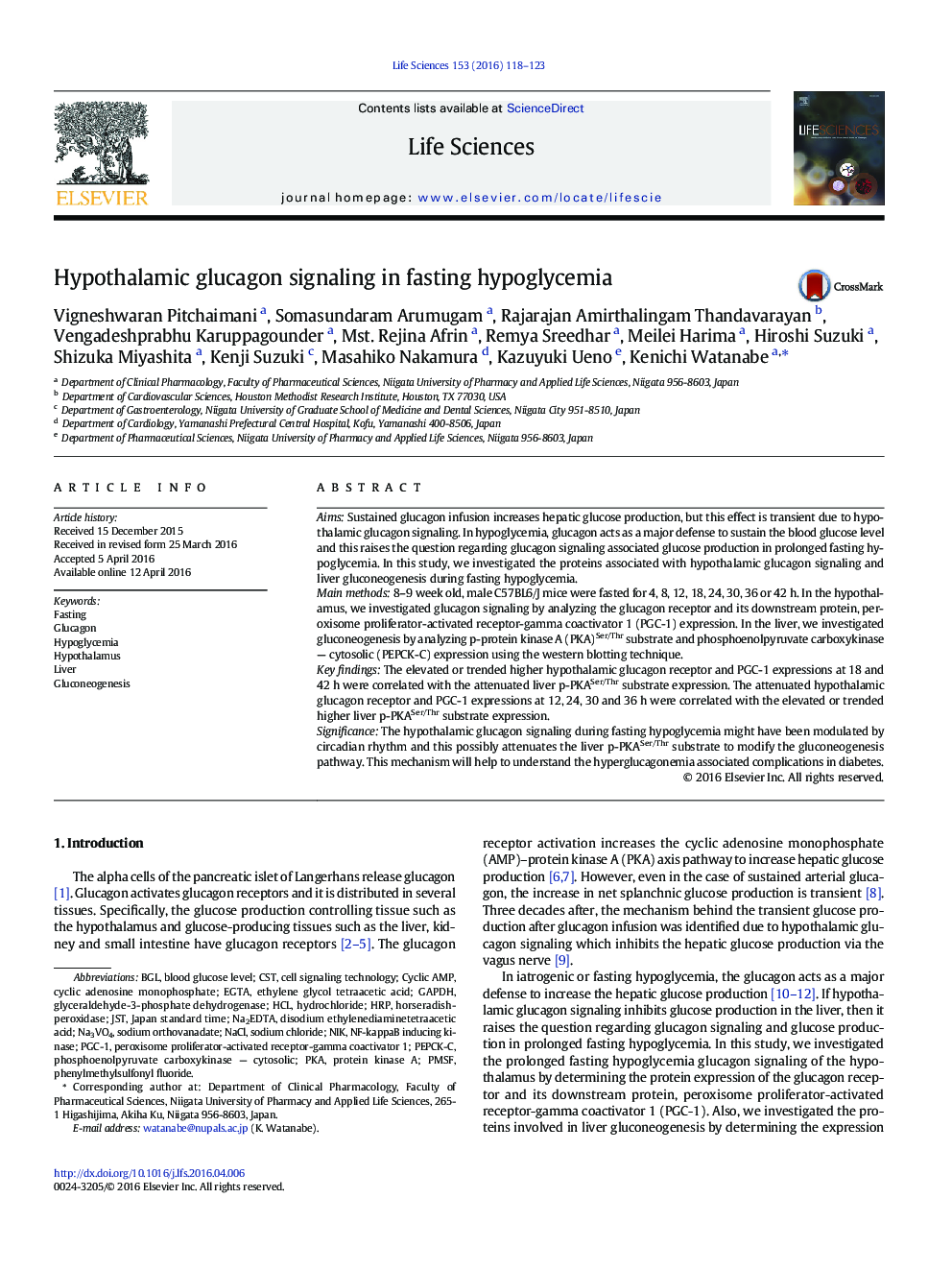| کد مقاله | کد نشریه | سال انتشار | مقاله انگلیسی | نسخه تمام متن |
|---|---|---|---|---|
| 2550561 | 1560575 | 2016 | 6 صفحه PDF | دانلود رایگان |
• Hypothalamic glucagon signaling might have been modulated by circadian rhythm.
• Increased glucagon signaling in the hypothalamus possibly attenuates liver PKA.
• Fasting hypoglycemia elevated the liver PEPCK-C expression with time.
AimsSustained glucagon infusion increases hepatic glucose production, but this effect is transient due to hypothalamic glucagon signaling. In hypoglycemia, glucagon acts as a major defense to sustain the blood glucose level and this raises the question regarding glucagon signaling associated glucose production in prolonged fasting hypoglycemia. In this study, we investigated the proteins associated with hypothalamic glucagon signaling and liver gluconeogenesis during fasting hypoglycemia.Main methods8–9 week old, male C57BL6/J mice were fasted for 4, 8, 12, 18, 24, 30, 36 or 42 h. In the hypothalamus, we investigated glucagon signaling by analyzing the glucagon receptor and its downstream protein, peroxisome proliferator-activated receptor-gamma coactivator 1 (PGC-1) expression. In the liver, we investigated gluconeogenesis by analyzing p-protein kinase A (PKA)Ser/Thr substrate and phosphoenolpyruvate carboxykinase — cytosolic (PEPCK-C) expression using the western blotting technique.Key findingsThe elevated or trended higher hypothalamic glucagon receptor and PGC-1 expressions at 18 and 42 h were correlated with the attenuated liver p-PKASer/Thr substrate expression. The attenuated hypothalamic glucagon receptor and PGC-1 expressions at 12, 24, 30 and 36 h were correlated with the elevated or trended higher liver p-PKASer/Thr substrate expression.SignificanceThe hypothalamic glucagon signaling during fasting hypoglycemia might have been modulated by circadian rhythm and this possibly attenuates the liver p-PKASer/Thr substrate to modify the gluconeogenesis pathway. This mechanism will help to understand the hyperglucagonemia associated complications in diabetes.
Figure optionsDownload high-quality image (84 K)Download as PowerPoint slide
Journal: Life Sciences - Volume 153, 15 May 2016, Pages 118–123
